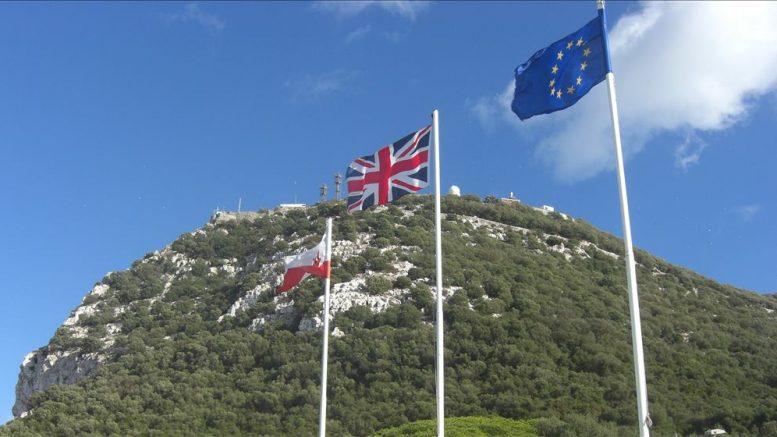Murray Ritchie explains why Scottish nationalists are smiling.
Scotland’s first minister Nicola Sturgeon could be forgiven if she let out a shout of delight when the Spanish let it be known they might use their veto to wreck the United Kingdom’s Brexit strategy.
As ever, the Spanish are indignant with the UK over Gibraltar which they are determined to return to Madrid’s jurisdiction. And, suddenly, they have the European Union behind them now that Britain’s departure has left it outnumbered in the Brussels negotiations by 27 to one.
But it is in Scotland that the Spanish intervention is being regarded as of beneficial significance. Scots who support independence have been told for years that Spain would veto Scottish membership of the EU.
Suddenly Brexit has changed that. Now it is the British who are being threatened by Madrid’s veto while the Spanish have suddenly softened their opposition to any application by an independent Scotland to join the EU.
Spain’s foreign minister Alfonso Dastis announced that, although Madrid remains opposed to an independent Scotland, there would be no veto.
After years of Spanish mutterings about blocking Scotland in the EU because it would encourage secessionist movements in Spanish regions, including Catalonia and the Basque country, Madrid will now concentrate on Gibraltar.
As Brussels has made clear, the EU is bound to “stand up for its members’ interests” – which in the case of Gibraltar means Spain
The people of Gibraltar find themselves with something in common with Scotland. Like the Scots, Londoners and the Northern Irish, they voted by a clear majority in last June’s EU referendum to Remain.
In fact, Gibraltarians were the keenest Remainers of all, with 96 per cent in favour. Spain has no problem with Gibraltarians choosing to remain in the EU, but it refuses to countenance the Rock remaining British.
The sovereignty issue has been contentious for centuries, but after Brexit the UK now finds itself isolated against the EU and it also finds Spain with 26 potential allies in this new disagreement.
As Brussels has made clear, the EU is bound to “stand up for its members’ interests” – which in the case of Gibraltar means Spain.
When the Prime Minister, Theresa May, sent her letter to Brussels last week triggering Article 50 a mention of Gibraltar was conspicuous by its absence. Foreign Secretary Boris Johnson talked of Britain’s “rock-like” support for Gibraltar – but did not quite explain how this could work in the face of a Spanish veto.
In Edinburgh, the Spanish intervention was received with delight and amusement. Those pesky Spanish were suddenly talking of wielding their much-vaunted veto against Britain and Brexit instead of against Scotland, thus shooting one of the British Unionists’ foxes in the debate about a second Scottish independence referendum.
The significance of Gibraltar to Scotland and vice versa has been obvious to both for many months. Talks between the Scottish government and Gibraltar have been ongoing since long before the EU referendum.
There has been speculation that Trident nuclear submarines based on the Clyde could be moved to Gibraltar in the event of Scottish independence.
 At last year’s Scottish National Party (SNP) conference – where Gibraltar had an exhibition stand – senior Gibraltar politicians had discussions with Ms Sturgeon. They expressed a common a desire to remain in the EU although they disagree on remaining in the UK.
At last year’s Scottish National Party (SNP) conference – where Gibraltar had an exhibition stand – senior Gibraltar politicians had discussions with Ms Sturgeon. They expressed a common a desire to remain in the EU although they disagree on remaining in the UK.
Gibraltar’s Deputy Chief Minister Dr Joseph Garcia told the conference he wanted Spain to learn to respect the will of the people.
“That is what self-determination means and what democracy is all about,” he said, calling for “different parts of the British family of nations” to enjoy varying degrees of participation with the EU after Brexit.
This chimes with SNP policy for special arrangements for those British areas that voted Remain.
Gibraltar is technically a territory of the UK and is represented in the European Parliament as part of the south-west England constituency.
Clare Moody, the local MEP, voiced “amazement” that Mrs May had not mentioned the Rock in her letter triggering Article 50, and she reminded the government it had a duty to “represent the people of Gibraltar”.
She told the BBC: “If the government has overlooked the interests of Gibraltar which is a crucial part of the kind of constitutional arrangements of our membership of the EU, then what else are they going to overlook as well?”
Ms Sturgeon, who wants Scotland to continue to have membership of the EU single market or access to it, is on record insisting that the government should strive for a special deal for Scotland, Northern Ireland, London and Gibraltar.
This means circumventing a hard Brexit for these four areas. “It just requires some political will,” she has argued.

Featured Image: Flags of Gibraltar. Credit: Olivier Bruchez
licensed for reuse under this Creative Commons




